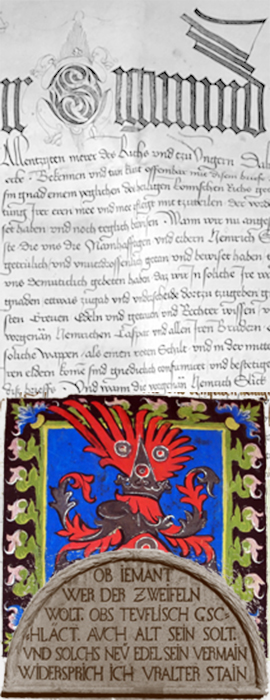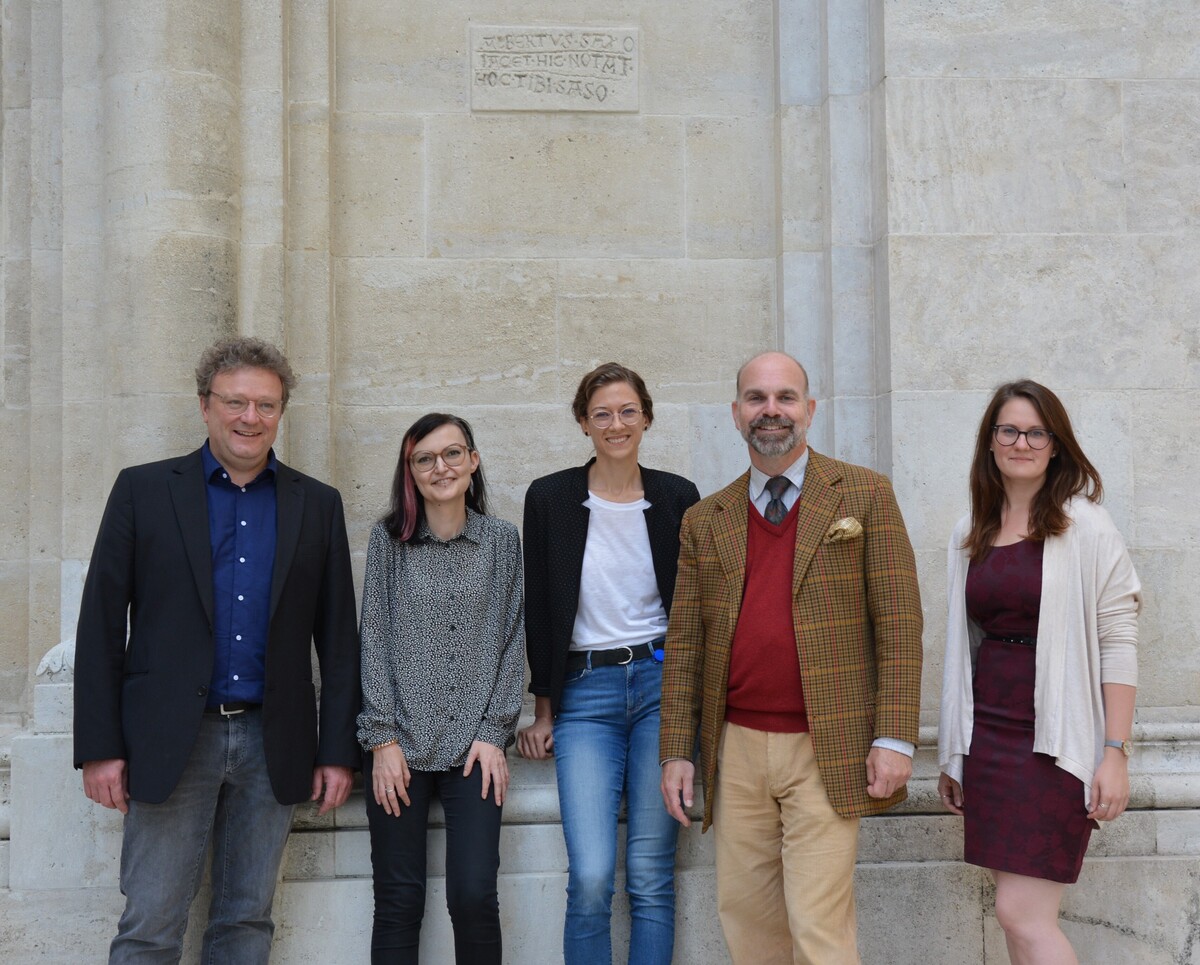Pre-Modern Inscriptions and the Shaping of Self-Conception and Self-Representation (PREMISES)
Writing History and Blending Media at The Augustinian Canons of Klosterneuburg
Like other groups, religious communities reflected about their existence and purpose, aiming at a coherent identity. Their respective strategies of self-conception and self-representation were promoted both internally and externally through different media. In order to assert itself externally and to stabilise itself internally in the monastic landscape of the Middle Ages and early modern period, the Augustinian canons of Klosterneuburg located themselves in the environment of the Austrian sovereigns. Alongside other textual means of communication, inscriptions underlined the canons’ view of its own history and the respective claim for its share in power. Since epigraphic texts are generally shorter than historiographical narratives in prints or manuscripts, they convey messages in a deliberately compressed form. Their media-related spatial, and performative characteristics were used to communicate with visitors which were granted access to more or less restricted spaces in the monastery.
PREMISES suggests that epigraphic writing, at Klosterneuburg as elsewhere, serves a specific performative and narrative function. It aims to find out how inscribed artefacts and their text/image combinations added to the overall media strategies of moulding self-perception and self-representation of the chapter by drawing on traditions and introducing innovations of monastic historiography.
The project relies on comprehensive source material, taking into account not only the epigraphic monuments still extant on site, but also the archival, textual, and pictorial transmission of objects now lost. PREMISES will for the first time produce a complete catalogue of the pre-modern epigraphic heritage of the Abbey of Klosterneuburg up to the year 1683 according to the model of the edition series “Die Deutschen Inschriften” (DI). The study of the inscriptions will incorporate a bundle of theoretical and analytical approaches established in historical cultural studies - above all the paradigms of mediality and spatiality.
FWF-Projekt: P 35635
Project leader:
Project members:
Running time:
1 August 2022 –
31 July 2026

